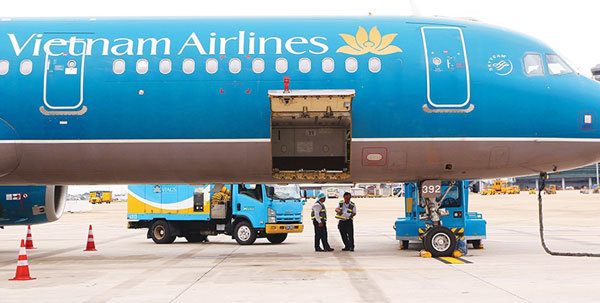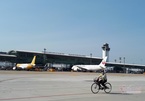that they will not have to wait much longer for their slice of the pie.
 |
| State-owned giants cling to support dream. Photo: Le Toan/ VIR |
The National Assembly (NA) on November 17 approved solutions to save Vietnam Airlines from the challenges of the global health crisis, with issuance of shares to increase chartered capital and refinancing in the focus.
Accordingly, the NA is allowing the State Bank of Vietnam (SBV) to refinance and grant two extensions for credit institutions, except for those under special control, for loans to Vietnam Airlines to serve its business activities. Thus, the airline can receive funding of VND4 trillion (over $173.9 million) at a lending rate of 4 per cent annually, as well as an increased share issuance for chartered capital of around VND8 trillion ($347.8 million).
Nevertheless, the question remains how the national carrier will make use of the cash injection and ensure a successful return while there are no signals of recovery in the global aviation market.
Aviation and tourism expert Nguyen Thien Tong forecast that the aviation sector is unlikely to experience another golden period as many businesspeople have found ways to make deals online. “Travel demand by air will take several years to recover to its old glory in 2019, and growth may be slower,” Tong said.
The International Air Transport Association last month adjusted its forecast on the slowdown of the global aviation sector next year when compared to 2019, from 29 per cent to 46 per cent.
Vietnam Airlines operates most international routes from the country. Its leader has admitted that in 2021 the airline will continue to suffer heavy losses, with VND60 billion ($2.6 million) evaporating each day due to the pandemic after the carrier incurred losses of VND10.5 trillion ($456.5 million) in the first nine months of 2020.
Worse still, the airline last month received back a 30-per-cent stake in Pacific Airlines from Qantas. The low-cost airline had continued to incur losses for years, meaning that Vietnam Airlines will suffer a double burden stemming from Pacific Airlines.
While Vietnam Airlines gets a privileged advantage, many other state-owned giants like Vietnam Railways (VNR), Vietnam Maritime Corporation (VIMC), and others are still struggling to survive, languishingly waiting for the government’s support policies.
Nguyen Duc Kien, Vice Chairman of the NA Economic Committee and head of the Prime Minister’s Economic Advisory Group, said that with Vietnam Airlines being an 86-per-cent state-held group, a financial support package for it was to be expected.
“Governments of many countries, including Germany and France, are also offering similar preferential loan policies for their major airlines,” Kien noted.
A representative of VNR said that since the issuance of the prime minister’s Directive No.11/CT-TTg dated March 4 on urgent solutions to support businesses amid COVID-19, it has so far been unable to access the government’s support policies.
“We have been waiting and hoping, and then waiting and hoping. Now that Vietnam Airlines has a support package, we also expect something similar soon,” the representative said.
VNR expects supporting policies involving taxes, an exemption on infrastructure usage fees (which makes up 8 per cent of VNR’s total revenue annually); restructuring of debt repayment schedules; and the continuation of working capital loans to ensure operation.
Even if VNR receives financial supporting tools, the railway sector will take several years to recover from the pandemic. This year, the corporation estimates that its parent company’s revenue might fall by VND700 billion ($30.43 million) to VND1 trillion ($43.47 million), incurring losses of between $30-40 million, depending on when the pandemic ends.
Similarly, shipping conglomerate VIMC is hoping for financial tools to be approved soon. Like other state-owned enterprises, VIMC desires to receive an extension of credit terms without any fines on late payments, a restructured debt repayment schedule, and continuously provided working capital to ensure operations.
Elsewhere, other transport titans like Airports Corporation of Vietnam, which operates 22 airports across the country, and Vietnam Expressway Corporation are also waiting for supporting policies. They forecast to suffer losses tantamount to VND140 billion ($6.08 million), and VND9.33 trillion ($405.65 million) respectively. VIR
Bich Thuy

How can loss-making equitized enterprises be rescued?
Experts say these enterprises need an ‘exchange transfusion’, which means a basic change in corporate governance. If not, they will continue taking losses.

Many state-owned groups see big losses amid COVID-19 crisis
Many enterprises have reported big losses because of Covid-19, including large state-owned groups.